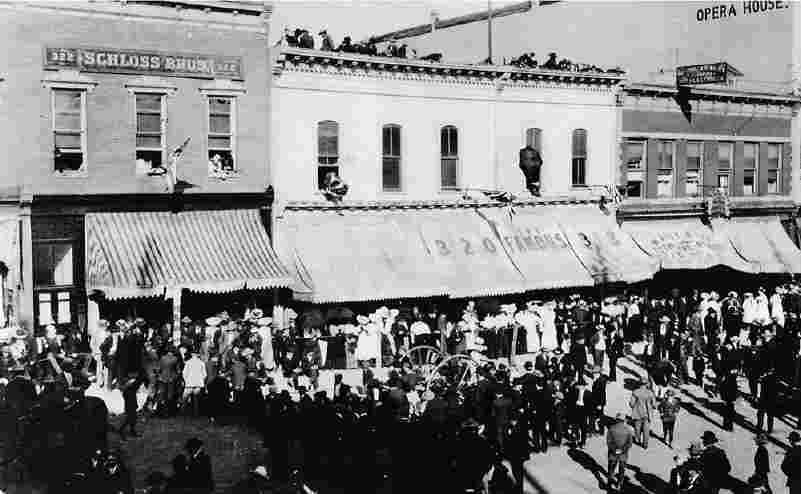
What's this Leadville you speak of?
Share

Don't mistake Leadville simply as a city. Or even a destination. Yes, it's both of those things. But knowing Leadville is knowing a lifestyle, an attitude, a way of life. Maybe it's the lack of oxygen, as Leadville sits above 10,000 feet in elevation and is the highest incorporated city in the United States. But things are different here.
Three feet of snow on the ground? You'll still find adventure athletes running down the streets. Fat tire biking? Yeah, we've got that AND a dedicated crew who groom the Mineral Belt Trail. You'll know it's spring time when the annual ski joring takes place on historic Harrison Avenue. Apparently skiing isn't enough; being pulled behind a horse while skiing is more like it. Summer doesn't disappoint. Burro racing, the Leadville Race Series (think races up to 100 miles up mountain passes), boating on Turquoise Lake, SUP at Twin Lakes, or hike a plethora of the tallest mountains in Colorado. Oh, and don't forget the Colorado Trail. Wait, did you see I mentioned Burro racing?! Yes, you read it correctly. You run a race with your burro.
But I think we got ahead of ourselves. Refill your coffee, wine, craft brew, or tea and lets go back a couple hundred years. In 1860, gold was discovered in the nearby California and Iowa gulches. By the end of the first summer, nearly $2 million worth of gold had been mined and the town's population grew to 10,000. The gold was quickly depleted and was replaced with silver. At the time, the town had several names - Cloud City (because the town is often covered in clouds, Boughton (early popular shelters made from trees), Harrison (after the owner of the first smelter, and Slabtown (because of the many temporary homes built on slabs).
It wasn't until 1878 that the town became known as Leadville, named by the notorious Silver King of Leadville, Horace Tabor. Mr. Tabor built the famous Tabor Opera House in 1879, billed as "the finest theater between St. Louis and San Francisco." Violence and prosperity coexisted in Leadville. Opening night of the Tabor Opera House had to compete with the double lynching of two claim jumpers who were taken from the local jail by a vigilante group and left to hang from the jail's rafters for all to see that thieves would not be tolerated.
Leadville had a reputation for its rough around the edges personality. The local paper described it: “Leadville never sleeps. The theaters close at three in the morning. The dance houses and liquoring shops are never shut. The highwayman patrols the street in quest of drunken prey. The policeman treads his beat to and fro. The music at the beer halls in grinding low. A mail coach has just arrived. There is a merry party opposite the public school. A sick man is groaning in the agonies of death. Carbonate Hill with her scores of briefly blazing fires is Argus-eyed. Three shots are heard down below the old courthouse. There is a fight in a State Street casino. A woman screams."
The arrival of Doc Holliday in 1883 was no help to shake the rough image. The notorious outlaw chose Leadville as his headquarters and remained there for most of his life until death. After Doc Holliday shot down a man in a saloon (located across the street from Elevation Goods!), the Leadville Daily Democrat, stated, in part, the following: “The public sentiment, which has nothing to do with the law, is largely in favor of Holliday. The manlier class of the community not only appreciate this but have little criticism to make as to his actions in connection with his trouble with Allen.” Doc's arrest record is still on file today in the courthouse.


At its height, Leadville was the second most populous city in Colorado, right behind Denver. However, with the repeal of the Sherman Act, the government stopped purchasing silver and moved on to gold, causing hard times in Leadville. Gold was later again found in Leadville and the boom cycles continued. Leadville attracted some pretty famous residents and visitors: writer Oscar Wilde, founder of Macy’s, David May, boxer Jack Dempsey, outlaws like Jesse James, lawmen like Wyatt Earp, and the Guggenheims, who are famous for their philanthropic endeavors. These visitors helped increase Leadville’s popularity along side full-time residents, such as Horace Tabor, Molly Brown, Jesse Fuller McDonald, Martin Duggan, and Molly May.
Today, Leadville remains one of the most authentic mining towns in the country. Surrounded by the San Isabel National Forest, it's home to crisp mountain air, historical significance, and a spirit for adventure. It's festive spirit resonates through Boom Days (to honor its mining past), ski joring, burro racing, Fourth of July parade, St. Patrick's Day Practice Parade, and much more!
A National Historic Landmark District, Leadville is meant for you and we couldn't be more proud to call it home to our brick and mortar shop!
Credits: Burro, Kevin Mastin (kevinmastin.com); ski joring, Jason Connolly via Getty Images; Doc Holliday, Legends of America (https://www.legendsofamerica.com/we-docholliday/); historic Leadville, (cowboykisses.blogspot.com).
